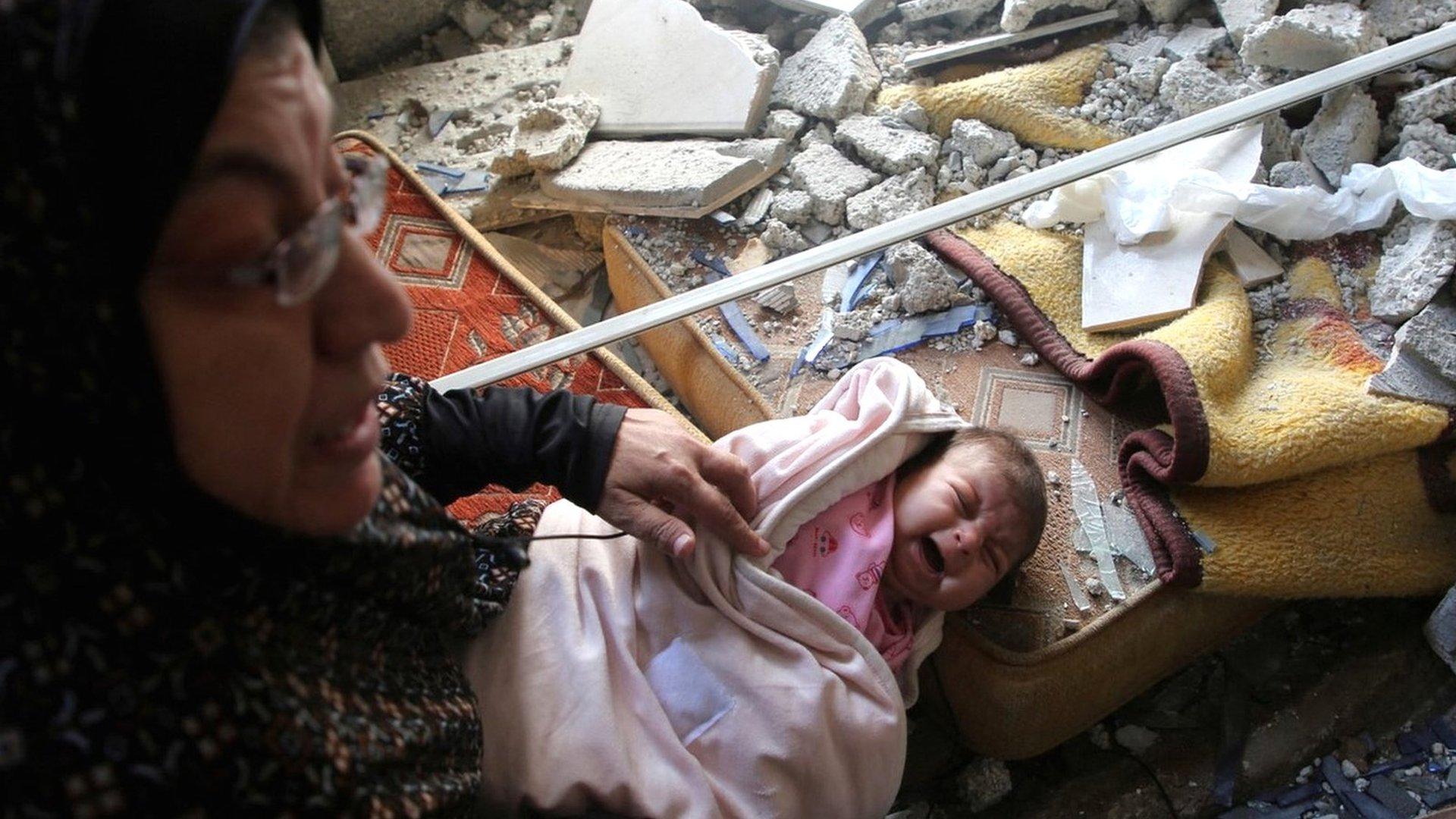Israel-Gaza war: Ceasefire talks intensify in Cairo
- Published
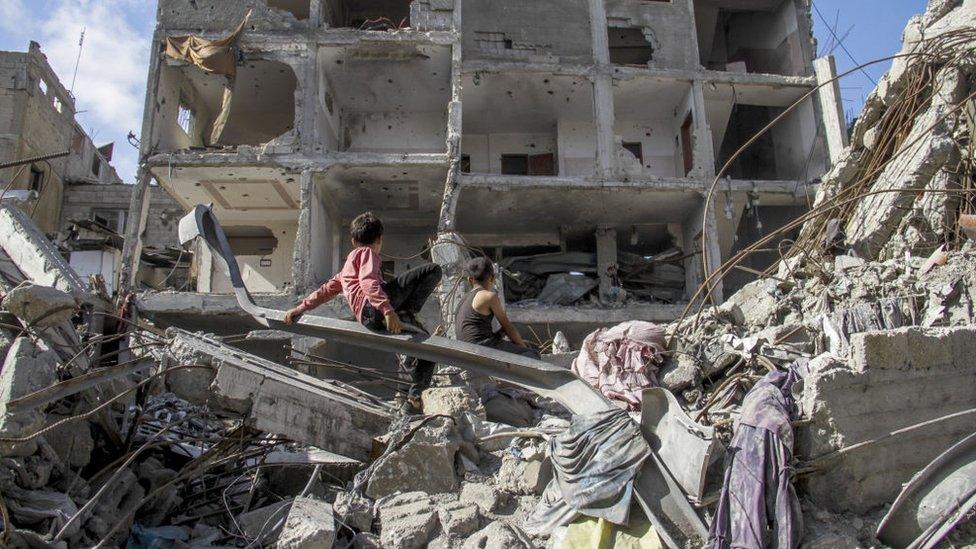
There are warnings of famine in Gaza following months of Israeli bombarment
Efforts have intensified to secure a deal for a ceasefire in Gaza and the release of hostages, with talks resuming in Cairo on Saturday.
Hamas said its delegation was travelling in a "positive spirit" after studying the latest truce proposal.
"We are determined to secure an agreement in a way that fulfils Palestinians' demands," it said.
US Secretary of State Antony Blinken said "taking the ceasefire should be a no-brainer" for the militant group.
Hamas's negotiators have returned to the Egyptian capital to resume long-running talks - brokered by Egypt and Qatar - that would temporarily pause Israel's offensive in Gaza in return for freeing hostages.
In a statement released last night, Hamas said it wanted to "mature" the agreement on the table, which suggests there are areas where the two sides still disagree.
The main issue appears to involve whether the ceasefire deal would be permanent or temporary.
Hamas is insisting any deal makes a specific commitment towards an end to the war, but Israel is reluctant to agree while the group remains active in Gaza. It's thought the wording being discussed involves a 40-day pause in fighting while hostages are released, and the release of a number of Palestinian prisoners being held in Israeli jails.
Israel's Prime Minister Benjamin Netanyahu has repeatedly insisted there will be a fresh military ground operation in the southern Gazan city of Rafah, even if a deal is agreed. Israeli media reported on Saturday that his position remained unchanged despite the latest round of talks.
But the US - Israel's biggest diplomatic and military ally - is reluctant to back a new offensive that could cause significant civilian casualties, and has insisted on seeing a plan to protect displaced Palestinians first. An estimated 1.4 million people have taken shelter in Rafah after fleeing the fighting in the northern and central areas of the strip.
Addressing the prospects of a truce on Saturday, minister Benny Gantz, a member of Israel's war cabinet, said: "An official response to the outline has not yet been received. When accepted - the war management cabinet will meet and discuss it. Until then, I suggest to the 'political sources' and all decision-makers to wait for official updates, to act calmly and not to get into hysteria for political reasons."
The Director of the US Central Intelligence Agency (CIA), Williams Burns, has travelled to Cairo to help broker the latest talks, according to two US officials who spoke to the BBC's US news partner, CBS News.
Mr Blinken has also been a key figure in the negotiations, and visited Israel again this week to meet Mr Netanyahu. Speaking on Friday in Arizona, Mr Blinken said "the only thing standing between the people of Gaza and a ceasefire was Hamas".
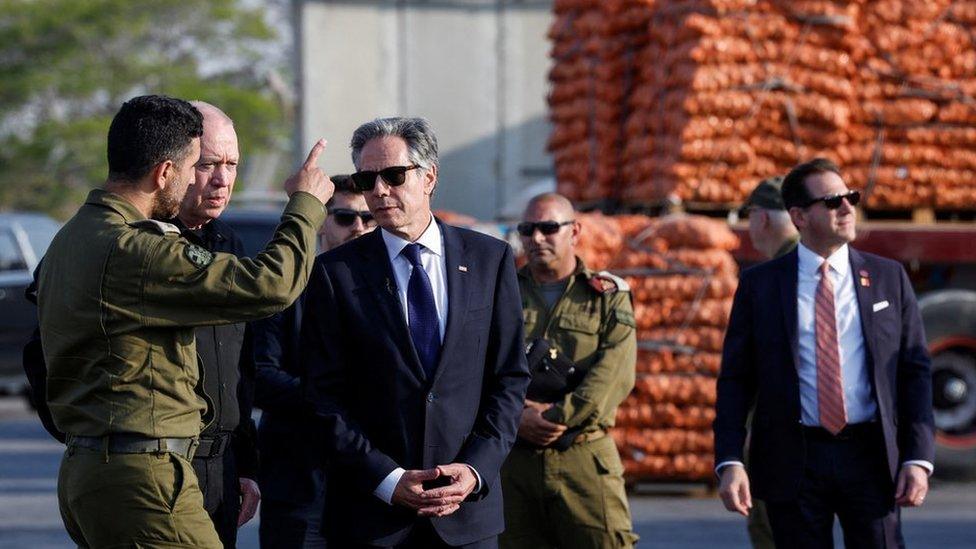
U.S. Secretary of State Antony Blinken visited Israel to meet Israeli premier Benjamin Netanyahu this week
So far, ceasefire talks have continued for months without a breakthrough. There hasn't been a pause in fighting or a release of hostages since the end of November. There have been moments in that time where a new agreement has seemed imminent, but a deal has fallen apart before it could be signed.
Even in this latest round of discussions, caution is needed. A source familiar with the talks told the BBC that the negotiations remained complex, and any breakthrough could still take several days.
A source told the Washington Post that the US had urged Qatar to expel Hamas's political leadership, if the group continued to reject a ceasefire.
On Saturday, hundreds of people gathered in Democracy Square in Tel Aviv calling for the release of hostages.
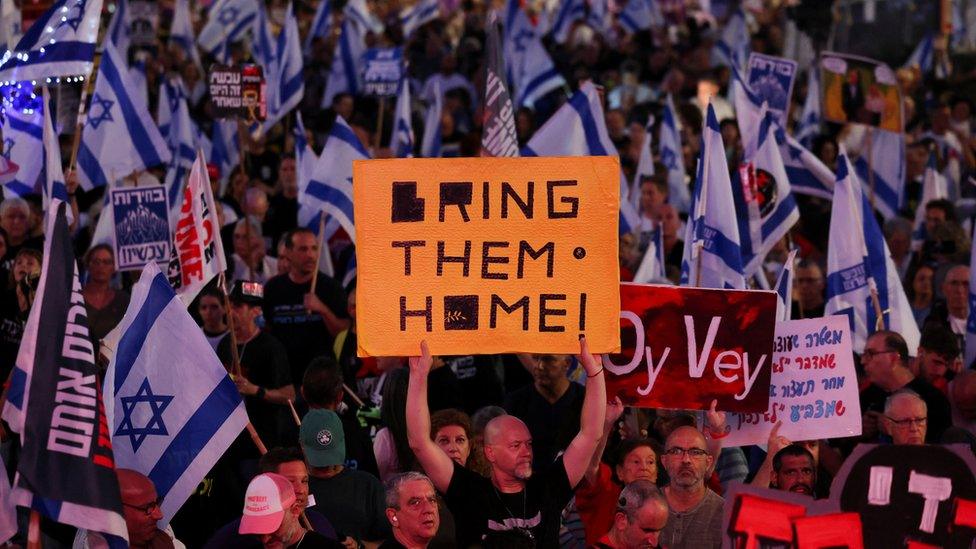
Relatives of the hostages also gathered at the Kirya military base in Tel Aviv to urge the government to make a deal. Some accused Mr Netanyahu of trying to undermine a proposed truce, and others called for an end to the war.
Ayala Metzger, daughter-in-law of 80-year-old hostage Yoram, said the government must agree to end the war if that is the price for the release of the hostages.
The war began after Hamas and other Palestinian militant groups attacked villages and military bases in southern Israel, killing at least 1,200 people and taking more than 250 hostages.
During the subsequent Israeli military campaign in Gaza, 34,654 Palestinians have been killed and 77,908 wounded, according to figures from the Hamas-run health ministry.
Related topics
- Published1 May 2024
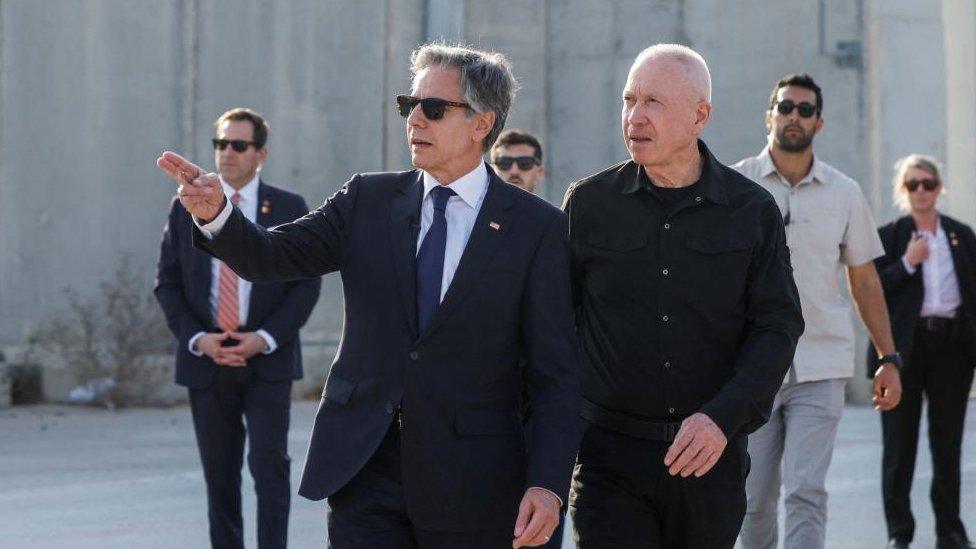
- Published29 April 2024
